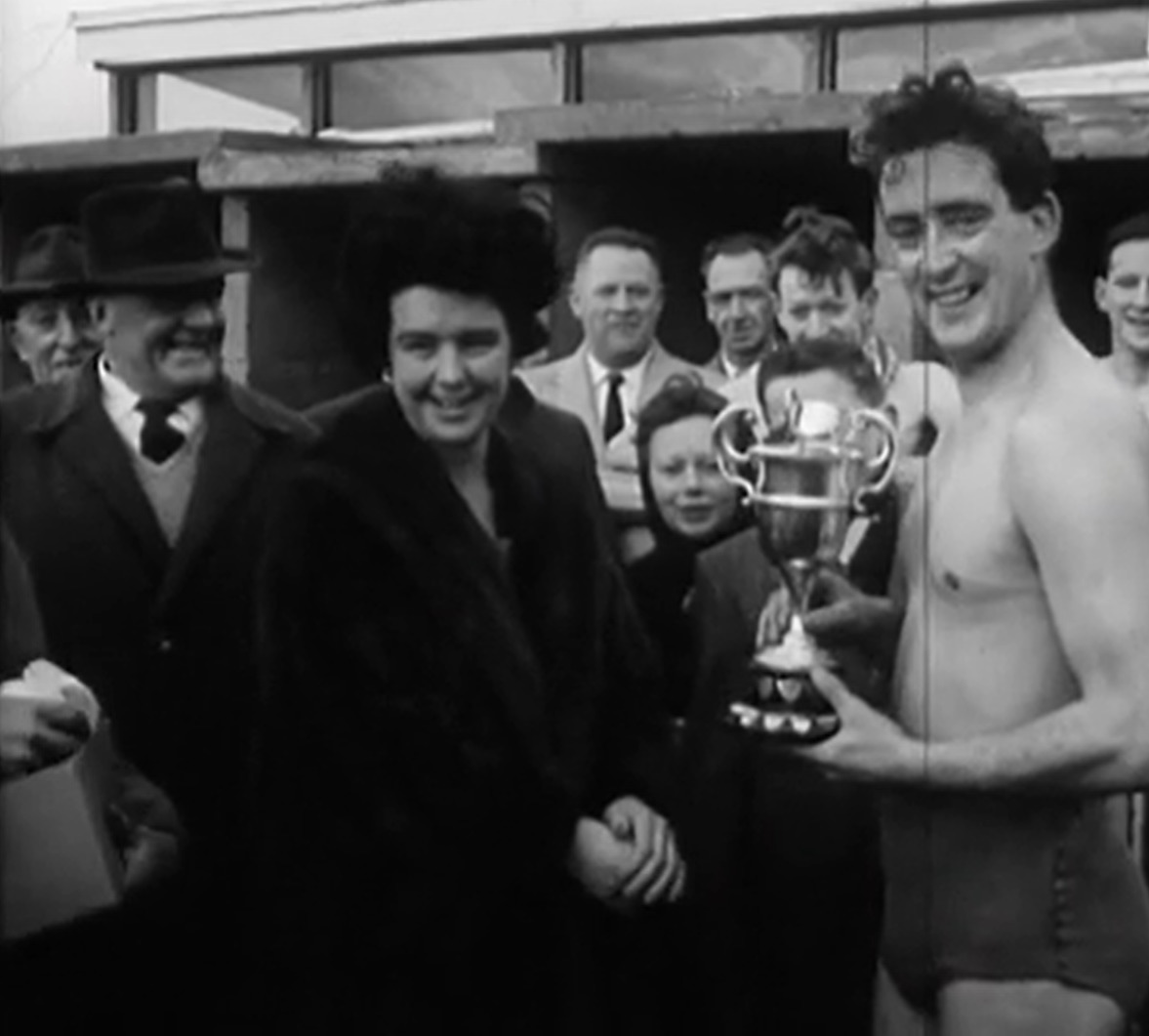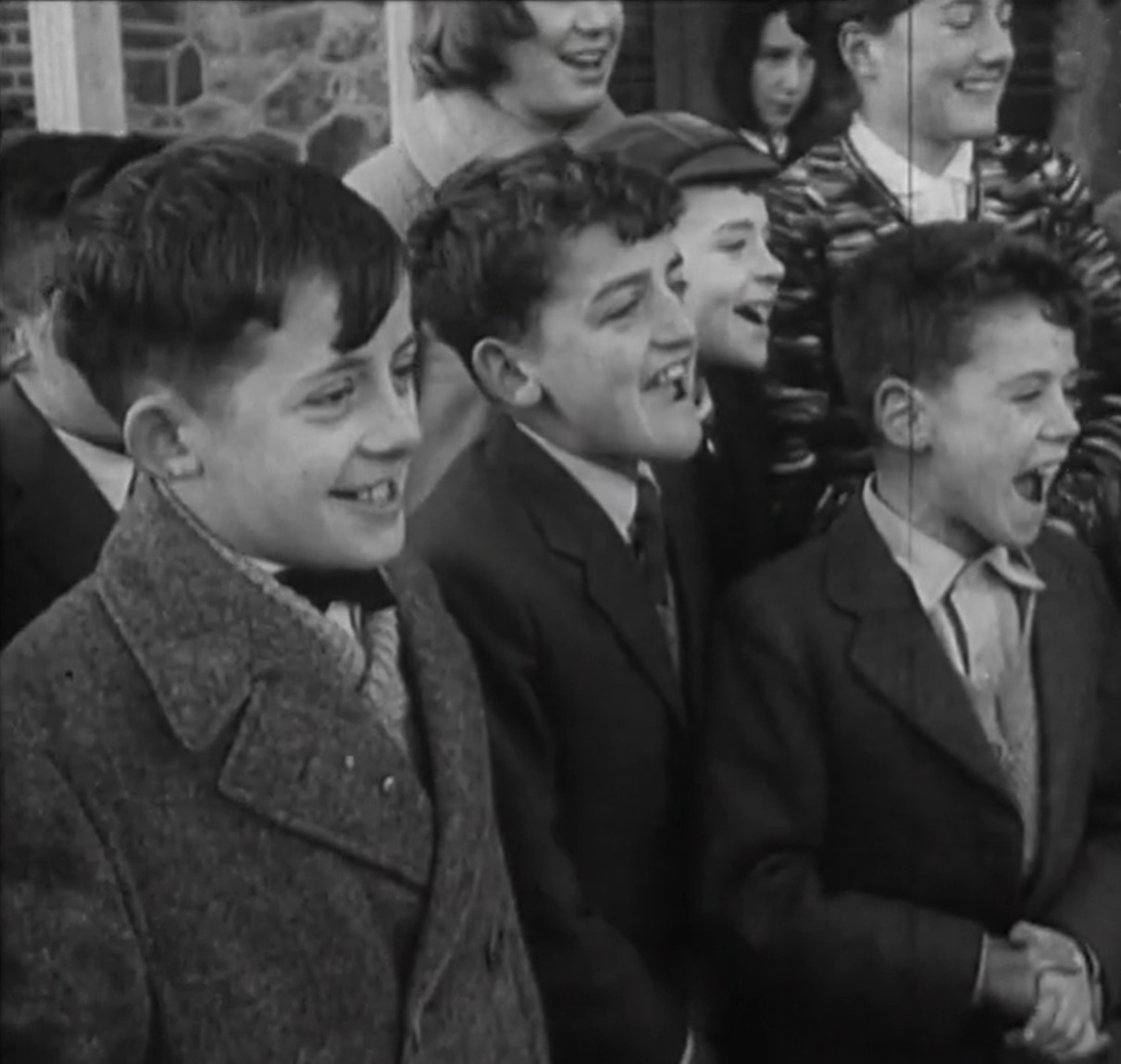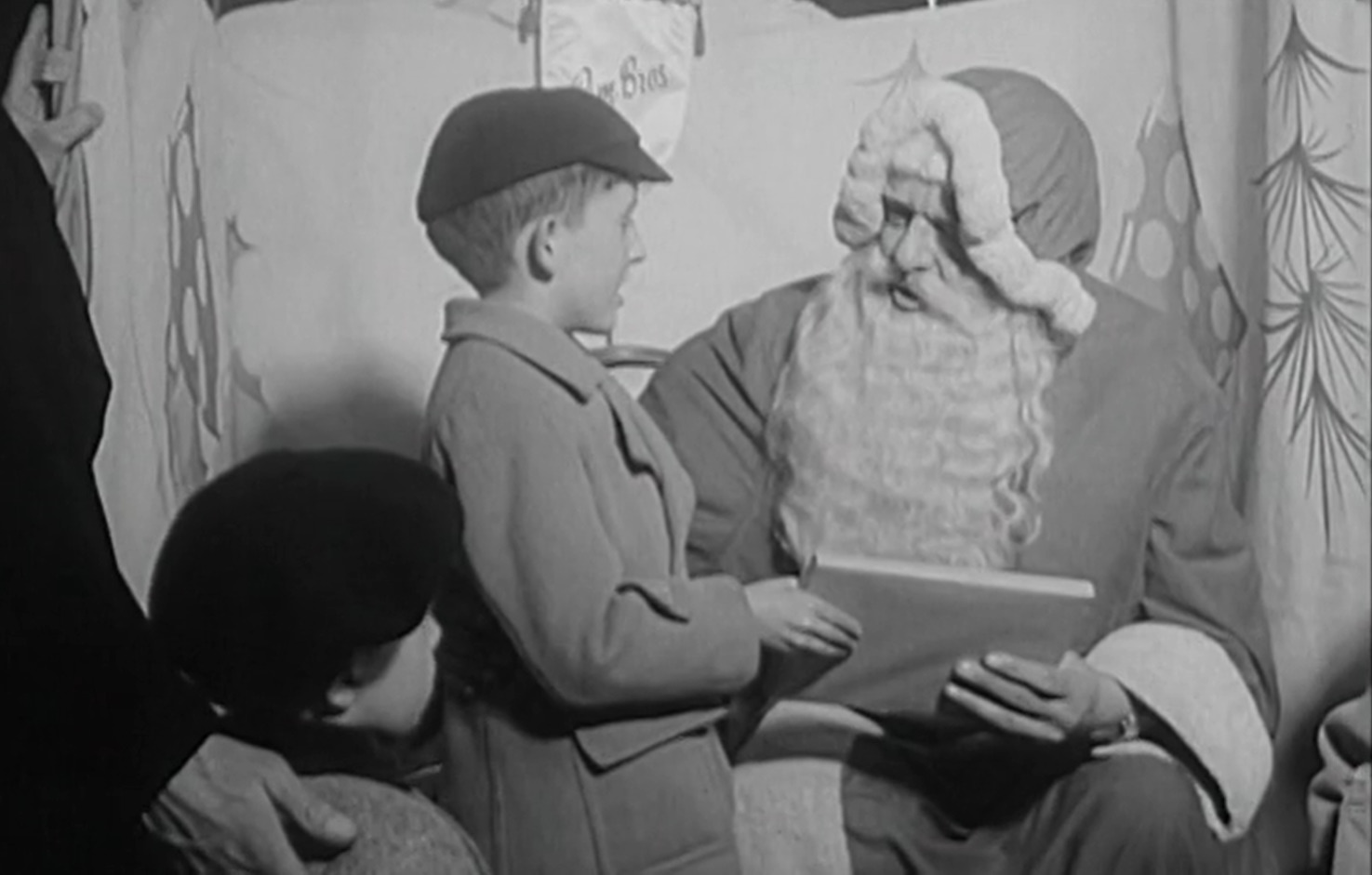By Anna Rose Garvey
Cultural traditions evolve over time and may need to adapt in response to a changing world. However, it is always interesting and enjoyable to recognise ourselves today in traditions from years ago. For this edition of IFI Film Eye, we explore a selection of Gael Linn’s Amharc Éireann (A View of Ireland) newsreels from 1959–61 recording Irish Christmas traditions.
DUBLIN SHOPS HIGHLIGHT CHRISTMAS—AMHARC ÉIREANN: EAGRÁN 28

1959 / 1 min. 30 secs
The first film covers Christmas in Dublin in December 1959. Crowds of shoppers flock to Moore Street and large department stores such as Pim Brothers & Co. on South Great George’s Street and admire the illuminated city. Santa’s grotto is the place to visit, through streets glistening with festive lights.
PUSS IN BOOTS PANTO—AMHARC ÉIREANN: EAGRÁN 83
1961 / 1 min.

From the Christmas lights we move to a Christmas pantomime: Puss in Boots in Our Lady’s Hall, Mourne Road, Drimnagh. This newsreel details the work put in by local volunteers from the communities of Crumlin and Drimnagh to stage a Christmas panto production in 1961. From acting, costume design, set design, electrics and carpentry, a festive celebration is created by the local communities.
CHRISTMAS DAY SWIM—AMHARC ÉIREANN: EAGRÁN 83
1961 / 47 secs

The final film is a Christmas Day swim. This newsreel records the annual Dublin Swimming Club Christmas Swim in Clontarf Baths, December 1961. Máire Potter presents a trophy to Niall Kennedy for braving the freezing water to win the swimming competition. The Clontarf Baths still exist today, and Christmas Day swims take place annually all over the country.
AMHARC ÉIREANN
Gael Linn was established in 1953 to promote Irish language and culture. In 1955 Ernest Blythe, chairman of Comdháil Náisiúnta na Gaelige, lent Gael Linn £100 to produce a short film for cinema and the Amharc Éireann newsreel was born. From 1956 to mid-1957 Amharc Éireann consisted of short single-story items, distributed monthly to Irish cinemas. By 1959 the newsreel was produced weekly and expanded to include four separate news stories. The series continued until 1964, when the immediacy of television rendered the newsreel obsolete. Produced by Colm Ó Laoghaire, a total of 267 editions of Amharc Éireann were created. The range of Irish-interest subjects covered provide a first-hand insight into the moral, cultural and economic development of the country through the Whittaker and Lemass eras (https://ifiarchiveplayer.ie/category/gaellinn/). Gael Linn (https://www.gael-linn.ie/) continues as an organisation today, focusing on the promotion of the Irish language and arts. For a deeper dive into the collections on the IFI Archive Player visit https://ifiarchiveplayer.ie/.
Anna Rose Garvey is Digital Platforms Assistant at the Irish Film Institute.
